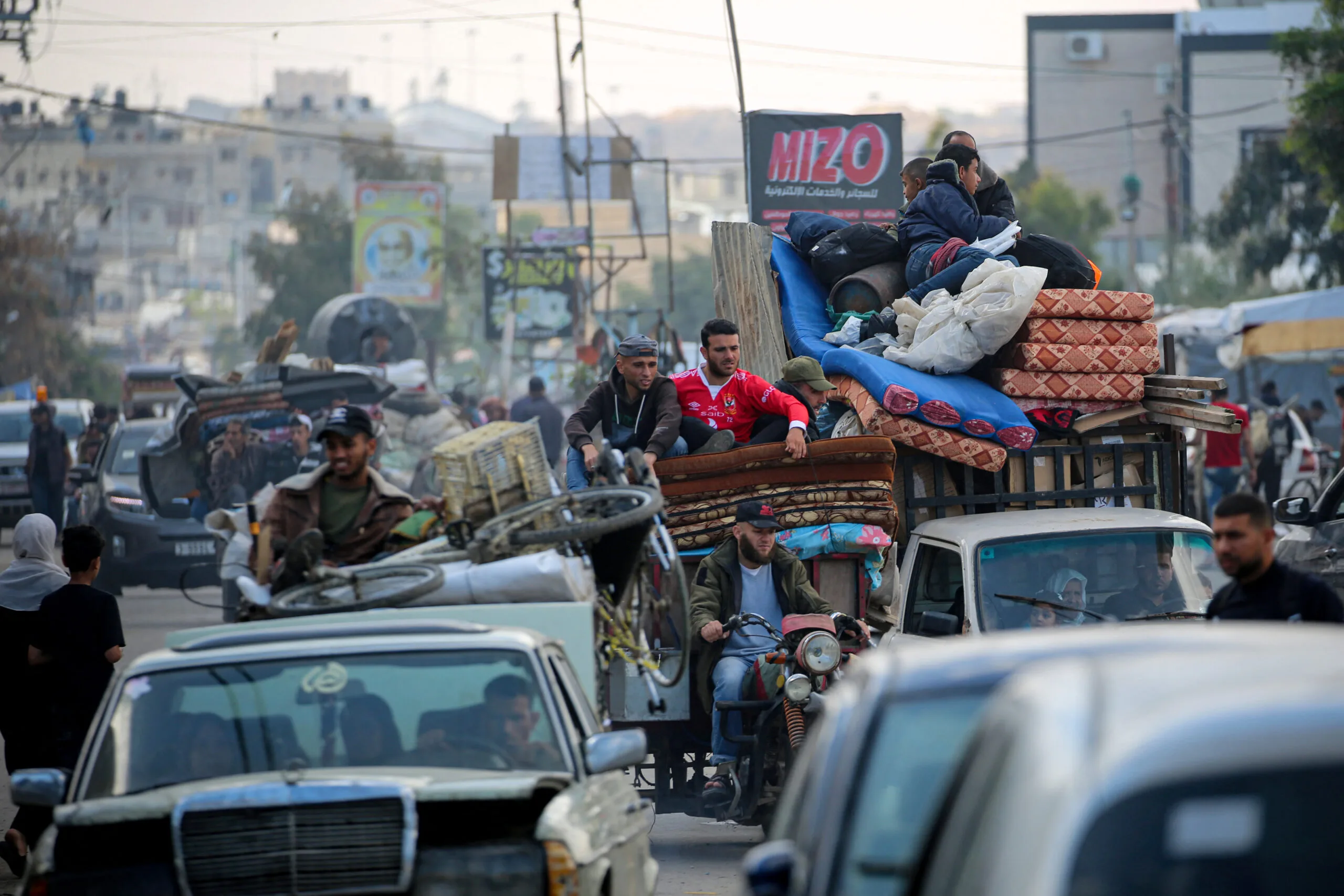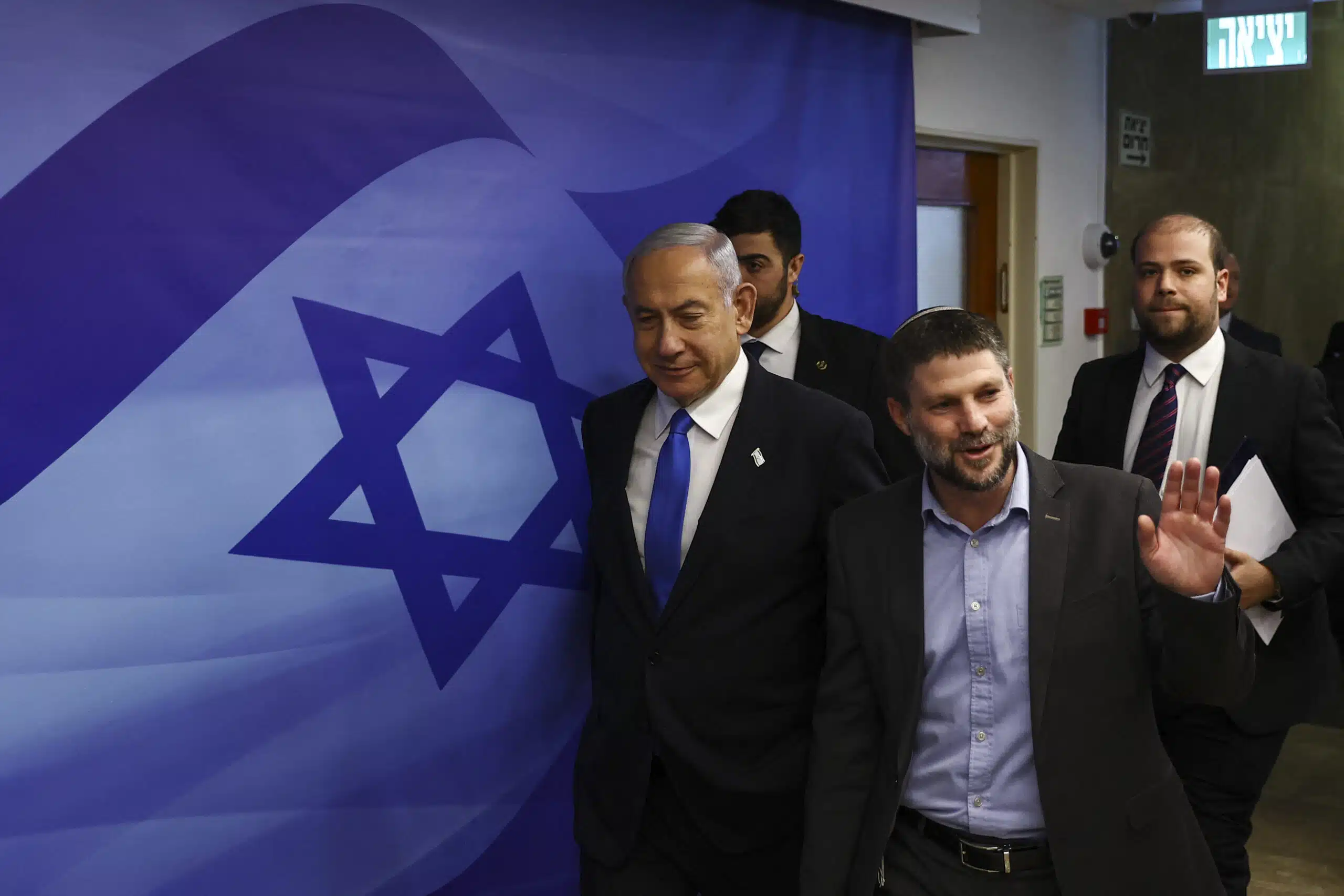Brussels – Following Qatar’s announcement of the agreement reached for a ceasefire in Gaza and the release of Israeli hostages, the EU—a mere bystander in the negotiations—applauded for a breakthrough capable of “bringing hope to an entire region”. But today (Jan. 16), good news is slow in coming: Israel has not yet formally approved the truce, and Benjamin Netanyahu has accused Hamas of retracting some details of the agreement. Meanwhile, Gaza authorities report at least 70 casualties in new Israeli air force shelling.
After weeks of intense negotiations in Doha and pressure from U.S. President-elect Donald Trump on Netanyahu, Israel and Hamas last night reached an agreement on a three-phase plan—in line with that proposed by the Biden administration several months ago—to end the war in Gaza. “Both sides should fully commit to all three phrases to avoid further bloodshed and escalation in the region,” announced Sheikh Mohammed bin Abdulrahman al-Thani, prime minister of Qatar. The agreement would pause a 15-month-long conflict that, after Hamas’ October 7, 2023 attack on Israel and the killing of 1,200 Israeli military personnel and civilians, triggered Tel Aviv’s fierce response, responsible for the deaths of at least 46,000 Gaza Strip residents.
In a note, Netanyahu personally thanked Trump “for his help in securing the release of the hostages.” The Israeli prime minister’s office also disclosed a phone call with outgoing U.S. President Joe Biden. Trump immediately claimed success, which “could only have happened as a result of our historic victory in November.” Biden quickly scaled back, speaking of a “team effort.”
The leaders of the EU institutions entrusted their reaction to their X accounts. The chairwoman of the European Commission, Ursula von der Leyen, called on both sides to “fully implement this agreement as a stepping stone toward lasting stability in the region and a diplomatic resolution of the conflict.” An “important and positive step towards ending the violence,” commented the High Representative for Foreign Affairs, Kaja Kallas, while the President of the European Council, António Costa, reiterated Brussels’ commitment “to a comprehensive, just and lasting peace based on the two-state solution.” The European Commission immediately announced a new €120 million humanitarian aid package for the people of Gaza “in light of recent developments.”
I welcome the ceasefire and hostage release deal reached today.
I hope this deal brings the suffering of civilians to an end and that those in captivity can be reunited with their loved ones.
It should allow for immediate access to much-needed humanitarian relief and create…
– António Costa (@eucopresident)
January 15, 2025
Under the terms of the agreement, during the first phase, all fighting should cease, and Israeli forces withdraw from Gaza towns to a buffer zone along the border of the Strip. As early as Sunday, the first release of 33 Israeli hostages in the hands of Hamas since Oct. 7, 2023, would be expected in exchange for the release of several hundred Palestinian citizens held by Israel. According to the Associated Press, for every hostage released by Hamas, Israel will release 30 Palestinians. “Children, women, including female soldiers, and those over 50 will be freed first,” the Qatari sheikh explained.

Also, in this first phase, lasting 42 days (six weeks), the nearly two million displaced people in Gaza would finally be allowed to move freely from the north to the south of the territory, which Israel has cut in half with a military corridor. More humanitarian aid should also be guaranteed to enter the enclave. In the second phase, Hamas should conclude the release of all remaining hostages in exchange for the repatriation of the number of Palestinian prisoners stipulated in the agreement. At that point, Israeli troops would have to withdraw completely from the Gaza Strip, but the details of this delicate step could be subject to further negotiations scheduled 16 days after the truce begins. The third phase would involve exchanging the bodies of deceased hostages and Hamas members imprisoned in Israel and initiating a plan to rebuild Gaza. Arrangements for the future administration of the Strip have not been finalised.
Despite the joy that erupted in several centres of the Strip, already late yesterday evening—after the announcement of the agreement—32 new victims of Israeli attacks were recorded. The attacks continued into the early hours of Thursday, and today, Gaza authorities have reported the deaths of 72 Palestinian citizens so far. In Rafah, Nuseirat, and northern Gaza. Israel reported no rocket launches by Hamas in the hours following the announcement of the agreement.

More importantly, the Israeli government security cabinet meeting scheduled for this morning, during which the agreement is supposed to be formally approved, has been postponed by Netanyahu. The PM’s office accused Hamas of “reneging on parts of the agreement” in an attempt to “extort last-minute concessions”. Netanyahu announced that he would not convene his ministers “until the mediators inform Israel that Hamas has accepted all elements of the agreement.” For its part, Hamas has strongly denied that it has made any backward marches on what was decided yesterday. According to Israeli media reconstructions, Netanyahu is again being held hostage by the Finance Minister, leader of the far-right Religious Zionism movement, Bezalel Smotrich, who is allegedly threatening (as he did last May in the face of Biden’s plan) to blow up the government if a stop to hostilities in Gaza is confirmed.
English version by the Translation Service of Withub




![Il presidente della Repubblica, Sergio Mattarella, con la presidente della Commissione europea, Ursula von der Leyen [Bruxelles, 21 maggio 2025. Foto: Emanuele Bonini per Eunews]](https://www.eunews.it/wp-content/uploads/2025/05/mattarella-vdl-120x86.png)


![Il presidente della Repubblica, Sergio Mattarella (sinistra), con il presidente del Consiglio Europeo, Antonio Costa [Bruxelles, 20 maggio 2025. Foto: Quirinale]](https://www.eunews.it/wp-content/uploads/2025/05/mattarella-costa-120x86.jpeg)